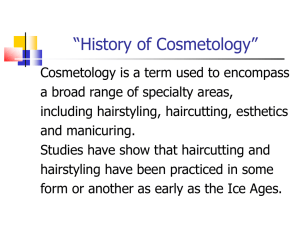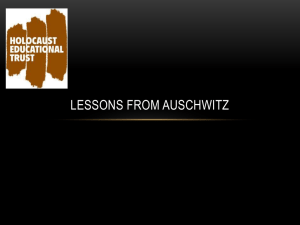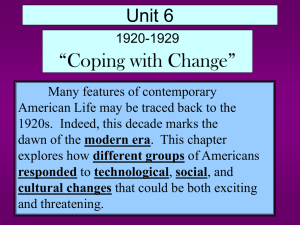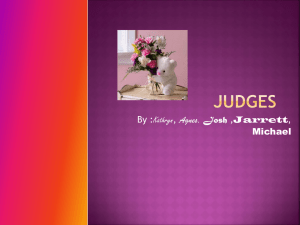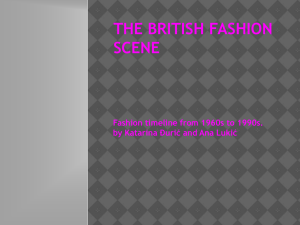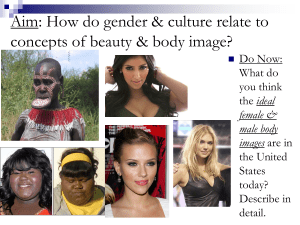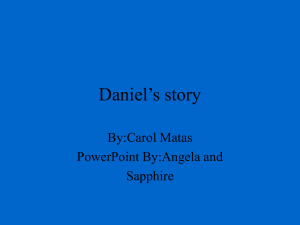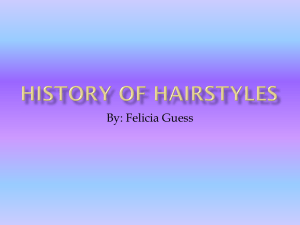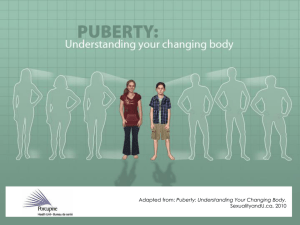Hairstyles - hill18-2011
advertisement
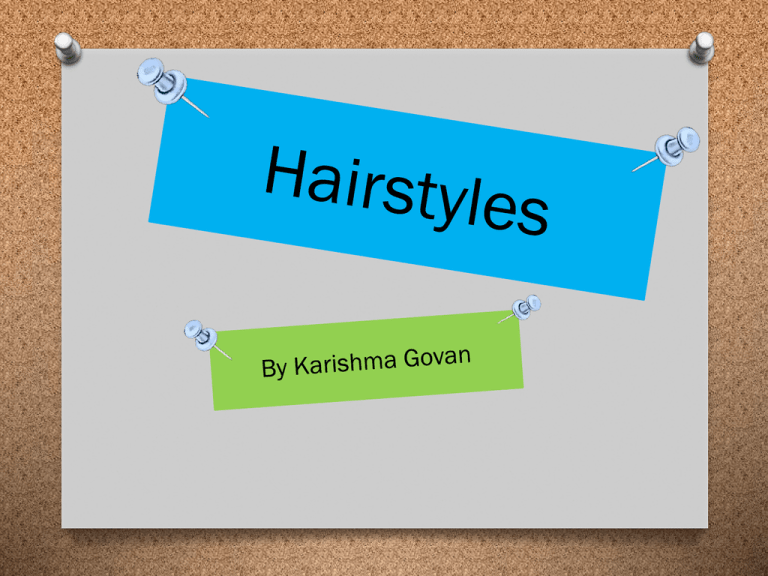
1920’s & 1930’s The Bob The short bob haircut could be worn with a fringe or with the hair brushed to the side. The bob hairstyle has remained in fashion since the 1920s. This was one of the most famous hairstyles worn in the 1920s by famous actresses. The Shingle The Shingle is basically a bob haircut that comes in at the back of the neck. The hair on the neck is cut with a razor and cut very short into a V shape often with curls at the sides. This style was often called the boyish bob. Eton Crop Of all the bob hairstyles popular in the 1920s, the Eton Crop is the shortest. It basically extended the shortness of the Shingle all the way around a woman's head. Marcel Wave This style was created by using a hot curling iron and flipping the hair upside down. This process produced waves, but early on the process was difficult because of the limited technology of curling irons. In 1920 an electric curling iron that plugged into a light socket was introduced and it made it easier to style hair in this way. Finger Waves This hairstyle used fingers holding down a section of hair while combing the hair back. This hairstyle needs a lot of combing, lots and lots of gel and quite alot of patience. Chignon – (Sheen-non) The Chignon is where glossy waves were created over the head that ended in a chignon or bun at the top of a woman's neck. Bobby pins were used to create waves and to keep the hair in place. 1940’s Omelette fold The Omelette fold was also one of the 1940 hairstyles that was often worn by many woman during the 1940’s. The hair was parted at the back and the stylist used a criss cross effect for the hair to create folds. Do rags A piece of cloth was used to cover chemically treated hair. Men, as well as women, used the Do Rag to keep their hair in place. Today, many well-known singers such as 50 cent and Eminem use the Do Rags hairstyle as a fashion statement. Pin curls Pin curls were also one of the famous 1940’s hairstyles. The pin curls were one of the most basic types of curls. Pin curls were mainly used to curl smaller areas of the hair, but could also be done for the whole area of the head. 1950’s Pompadour The pompadour was created by combing the hair against the sides, but pulling the hair up and over on itself on top. This look was popular with celebrities like Elvis Presley. Ducktail The Ducktail was created by leaving some hair long around the neck and applying hair grease. Pixie The Pixie hairstyle is a very short hairstyle with an even shorter fringe. 1960’s Beehive Women created this hair do by teasing their hair up with plenty of hairspray, usually in a tall, dome shape. The shag The Beatles made this hairstyle famous in a time when men still kept their hair short. It’s any hairstyle that’s grown out and messy. Bouffant – (boo-font) Generally, any haircut that’s piled high on top of the head is a bouffant. The beehive hairstyle is a type of bouffant. 1970’s Afro A hairstyle worn mostly by African-Americans, but also by other people with very curly hair. Curly hair is grown and brushed out to create a perfect circle of hair surrounding the head. Corn rows Corn rows allowed the person to wear an alternative to the afro. The hair would be braided tightly into the scalp, usually in rows from front to back, and secured with elastic bands. Dreadlocks The dreadlock hairstyle involves sectioning the hair into locks and growing it as long as it can go. Feathered Flip (Farah-do) Made popular by actress Farah Fawcett, thousands of women copied this hairstyle in the 1970s. The hair would be parted and teased back, but still soft and flowing. Bowl cut If you couldn’t afford to go to the barber, you could ask your mother to place a bowl on your head and shave everything else off. That is exactly what many boys did, or at least looked like they did. 1980’s Devilock Made popular by the punk band the Misfits, it’s hair that has been teased forward and pointed. Mullet It’s very simply long in the back and short in the front. There are many different styles, including the mullhawk (mullet-mohawk), the tropical mullet (with dreadlocks in the back), the skullet (shaved head with long hair in the back). Mohawk The Mohawk was created by shaving the head except for a strip in the middle, from the forehead to the back. This would be grown long and held straight up with any number of household liquids, including eggs, glue hairspray, and gel. Other forms include the Reverse Mohawk (shaved hair being in the middle.) Rat - tail A hairstyle involving a long strip of hair on the back of the neck. The hair could be left alone or braided. Perm As with many other styles of hair, perms had been introduced prior to the 1980s, but became really popular during this decade. Women and men both, but mostly women, would perm their hair, tease it, and use as much hairspray as possible to hold it in place. Hi-top Fade For this hairstyle the hair would be shaved at the neck, puffed straight up, and shaved flat at the top. This style was popularized by Will Smith. 1990’s The Rachel A popular haircut with women in the 1990’s, it was named after the character Rachel Green from Friends, who wore this haircut in the first few seasons. It is a layered, bouncy hairstyle with highlights and lowlights. 2000’s Fauxhawk A shorter haircut is styled with gel to create a section of hair in the middle. A variation on this is the Hoxton flip, where the hair is smoothed back at the sides and spiked up the top like a Mohawk. Emo The hair would be dyed black. Then parted to an extreme on one side and the fringe would be razor cut. Long & Straight In the early 2000s women's hair was long and straight. Side-swept fringes become popular towards the mid2000's. Towards the late 2000's, natural wavy hair, sideparted hair and shorter styles like the bob cut and pixie cut came back.
